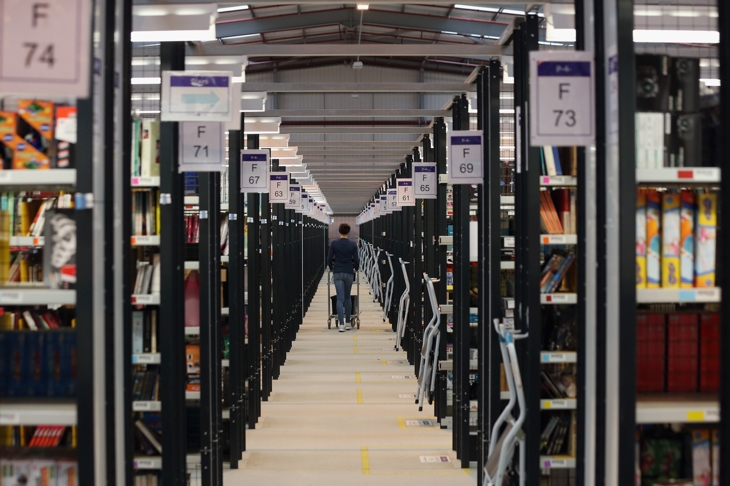I’ve worked in several warehouses unloading stock and I’ve also worked in supermarkets stacking shelves. I’d have to say the latter is marginally harder. Not that there’s much in it: both are physically hard, mentally untaxing, and probably undervalued – but then, don’t we all feel undervalued at work?
Warehouse jobs are more of a laugh. When unloading boxes that all looked the same, some were much heavier than others. If you were on the van you’d make out the heavy ones were light and vice versa. Oh, the japes we had… Best of all, there was usually an unloaded pallet you could hide behind for a nap. Whereas on the shop floor, surrounded by members of the public, with some tetchy manager in a cheap suit on your case, there were fewer opportunities for mayhem.
I’m inclined therefore to support the struggle of the Tesco women in their bid for equal pay. I just hope they don’t reduce the men’s pay in the name of equality. I must say, though, that £11 an hour sounds about right for doing the job of a robot. Robots may cost more in the short term, but you’re less likely to find them perusing porn mags behind the paladins.
What concerns me, though, isn’t the issue of equal pay itself. Of course women and men doing equally execrable jobs should be paid an equal amount, and in most cases should get more. It’s the way the issue has been latched onto by incredibly well-paid women – columnists, BBC presenters, politicians – as yet another example of the rough deal women get compared to men. As if some bloke in a warehouse has an easier time of it than a privately-educated journalist who has never, in the words of Seinfeld, lifted more than three pounds in her life.
As someone who spent year after year in so-called menial jobs – warehouses, building sites, cleaning offices – I must say it never struck me that I was a bastion of male privilege. Similarly since our first child was born 14 years ago I’ve shared all the joys and tribulations of parenting; my wife went back to work full-time three years ago, since when I’ve done the school run and many of the domestic duties as well as trying to make a living. What this has given me, apart from an insight into how tough it is to be a housewife – sorry, home-maker – is a worrying lack of guilt about being a man.
There seems to be a growing sense that men – of all classes and backgrounds – are responsible for all the world’s ills, and I think that’s unfair. Is it really so difficult to accept that women have had a pretty raw deal through history while also acknowledging that most men haven’t exactly had it easy either? This childish desire to make people feel guilty for what they are – male, white, British – seems certain to backfire because it is so divisive. The Guardian and certain academics are always telling us to feel guilty about colonialism, as if we were personally culpable, but that notion represents a misreading of history. Like ninety percent of English people, my forefathers were factory men or worked in agriculture in appalling conditions. We weren’t all sitting in a Calcutta garden drinking gin. The only time most English people went abroad before the 1950s was to fight in bloody wars, to kill or be killed. I don’t feel guilty about my heritage: I feel proud, sad and angry.
There now seems to be a growing backlash by some white men which is unpleasant and worrying, but in certain cases I’d have to say it’s understandable. Keep telling people of a certain background that they are evil, privileged, potential rapists who are responsible for all the world’s ills and they may start to believe you and become consumed with unhealthy guilt – or reject your accusations as sour grapes, historical illiteracy, prejudice. Both mindsets are equally damaging; neither will take us forward. So let’s stop dividing people and playing the blame game and accept that life is messy, nuanced, and unfair, and that we have to all work together to make things better for all – because black or white, male or female, rich or poor and all those in between – no-one gets out of here alive.






Comments